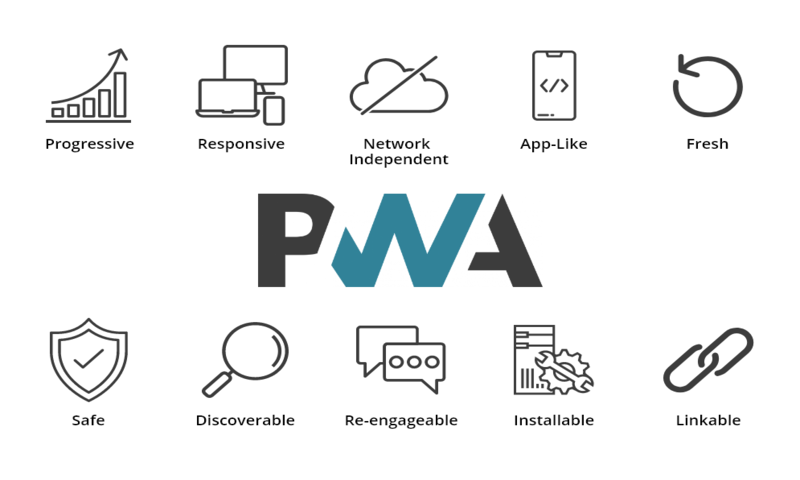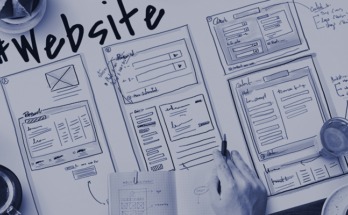Introduction
If online retailers don’t keep up with the new trends, they will not be able to keep up with the demands of today’s consumers. Progressive Web Apps are a web development technique that has emerged in the last few years and has had a significant impact on the industry.
We’ll go through the primary benefits of Progressive Web Apps in this post. It’ll help you make an informed decision about whether or not they’re ideal for your project.
What is PWA?
There are three types of applications and PWA is one of them. Web and native apps are the other types.
The software of native apps is created for a particular operating system, such as iOS or Android, rather than being a cross-platform app that works on any platform. A native app’s language was created specifically for the platform it was designed for. Objective C or Swift is used on iOS, whereas Kotlin or Java is used on Android. Apps for iOS and Android may be downloaded directly from the relevant stores.
A programme that runs on a web server is known as a web app. JavaScript, CSS, and HTML make up the majority of online applications. There are a variety of devices and browsers that you may use to access online applications, but certain features and capabilities may not be compatible.
A PWA is considered a mix of the best qualities of a native and a web app. Like web applications, they’re also written in CSS, JavaScript, and HTML. PWAs are developed for and live online, and they operate really well on browsers and devices. Retailers also hire PWA development agencies in Portsmouth to build their universal app professionally.
PWA applications offer several advantages
1. The ability to use the app when offline
If your internet connection is unstable, your website’s content will not appear properly. However, mobile applications are generally self-contained and may be used even if the user is not connected to the internet. As a result, they are more accessible and engage the audience.
2. App-like user experience
Mobile users choose mobile apps over browsers because they are more user-friendly, work offline, and have a more visually appealing interface. The look and feel of mobile apps and the finest of website performance are combined in progressive web applications, which create an improved user experience.
3. It’s like being on the go
Website features like dynamic data and database access may be accessed through Progressive Web Apps (PWAs). It is common for PWAs to benefit from existing frameworks and UX/UI that allow for enhanced user experiences as compared to traditional web browsers. Even more, PWAs may be tracked by search engines, which increases their visibility in the marketplace.
4. They are suitable for any device and look great.
Progressive Web Apps are universal since they operate on a browser. They are able to adjust to any screen size. They are progressive, therefore perform properly on any device, no matter what sort of browser someone uses. Additionally, Progressive Web Apps are responsive, meaning they adapt flawlessly to the screen size of any device.
5. Discovered Outside of the Shops
PWAs can be found online, without the need to visit a store. When it comes to making your PWAs visible, Google provides a set of recommended practices to follow. It does not imply that it’s impossible to publish your PWA in an app store like Google Play, it is just not the right place for it.
6. Cost-Effective to Build
Due to the more time-consuming nature of native app development, it is more expensive than cross-platform app development. Since it works on almost every browser and operating system, a PWA has to be designed only once. Simplifying and reducing development costs are both possible with a single codebase. The cost of maintaining a PWA is also lower than that of a native app.
Conclusion
If you’re looking to include new technologies like PWAs into your business, a Magento eCommerce agency can help you do it. PWA can provide an app-like user experience. They are simple to use, quick, and safe. It can also help your site perform better in search engine results.




